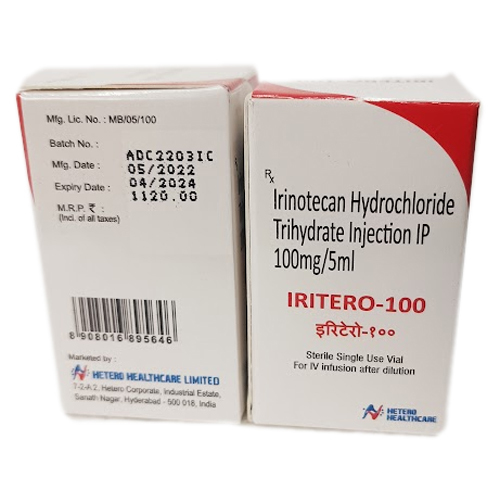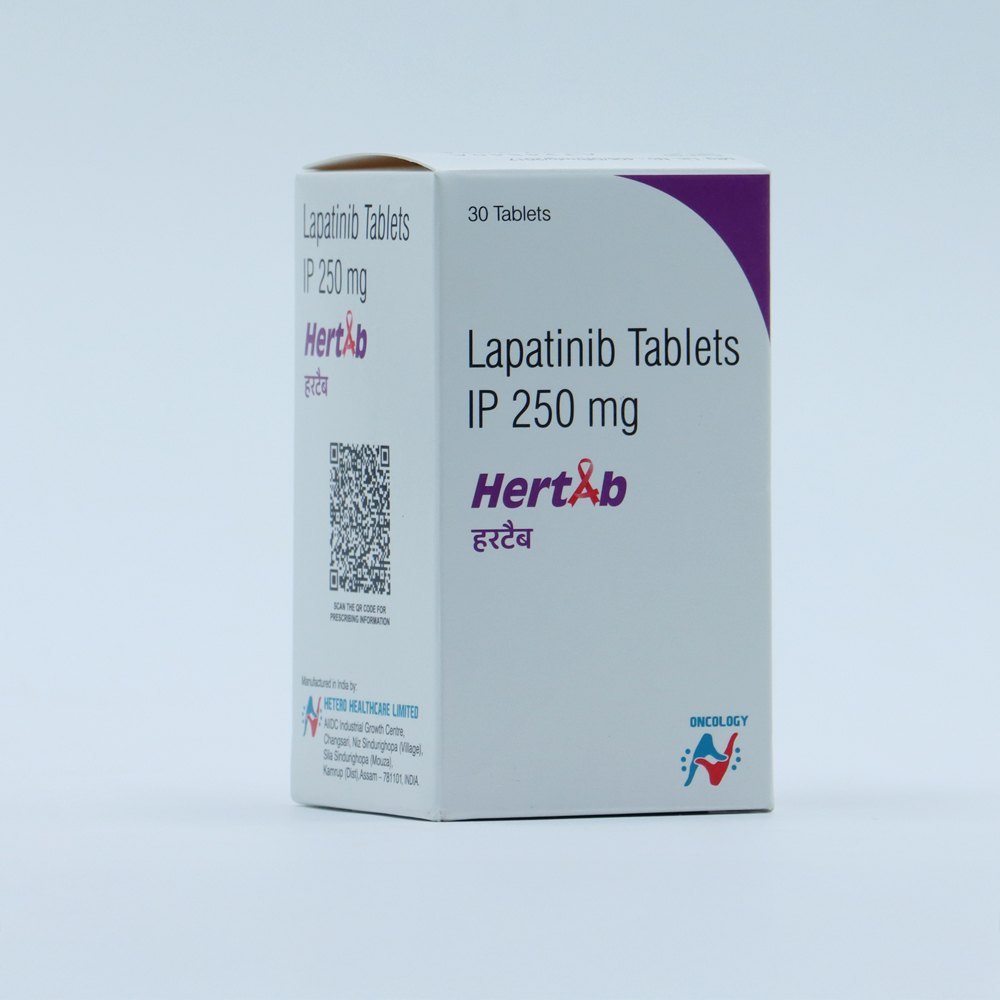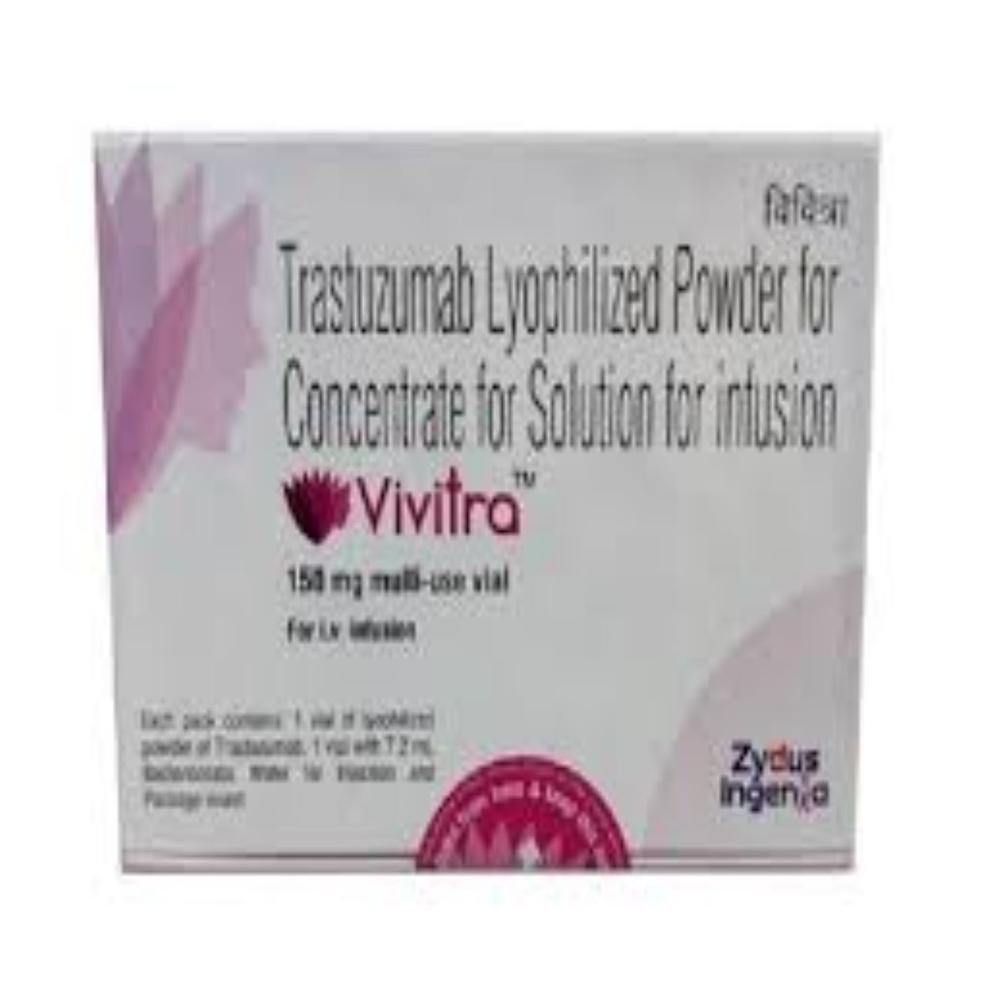Irinotecan Hydrochloride Trihydret Injection IP
Product Details:
- Drug Type Injection
- Physical Form Liquid
- Dosage 100 mg
- Dosage Guidelines As per physician
- Storage Instructions Keep dry & cool place
- Click to View more
Irinotecan Hydrochloride Trihydret Injection IP Price And Quantity
- 800 INR/Vial
- 10 Vial
Irinotecan Hydrochloride Trihydret Injection IP Product Specifications
- Keep dry & cool place
- Liquid
- Injection
- 100 mg
- As per physician
Irinotecan Hydrochloride Trihydret Injection IP Trade Information
- 1000 Vial Per Week
- 4 Days
- Asia, Australia, Central America, North America, South America, Eastern Europe, Western Europe, Middle East, Africa
- All India, South India, Central India, West India, North India, East India, Gujarat, Karnataka, Kerala, Lakshadweep, Mizoram, Meghalaya, Manipur, Andhra Pradesh, Bihar, Chandigarh, Daman and Diu, Goa, Jharkhand, Odisha, Punjab, Assam, Delhi, Dadra and Nagar Haveli, Andaman and Nicobar Islands, Arunachal Pradesh, Chhattisgarh, Haryana, Himachal Pradesh, Jammu and Kashmir, Madhya Pradesh, Maharashtra, Nagaland, Rajasthan, Sikkim, Tamil Nadu, Telangana, Tripura, Pondicherry, Uttar Pradesh, Uttarakhand, West Bengal
Product Description
Iritero 100 Injection is an anti-cancer medication. It works by suppressing the activity of an enzyme (topoisomerase I) involved in DNA multiplication of the cancer cells. This slows the growth of cancer cells and eventually kills them.
-
What is Irinotecan Hydrochloride Trihydrate?Irinotecan Hydrochloride Trihydrate is a chemotherapy medication used in the treatment of various types of cancer, including colorectal cancer and certain types of lung cancer.
-
What conditions does Irinotecan Hydrochloride Trihydrate treat?Irinotecan Hydrochloride Trihydrate is commonly used in the treatment of metastatic colorectal cancer and advanced non-small cell lung cancer (NSCLC) that has not responded to other treatments.
-
How is Irinotecan Hydrochloride Trihydrate administered?Irinotecan Hydrochloride Trihydrate is administered intravenously (into a vein) by a healthcare professional in a clinic or hospital setting. The dosage and frequency of administration will be determined by the patient's specific condition and medical history.
-
What are the common side effects of Irinotecan Hydrochloride Trihydrate?Common side effects of Irinotecan Hydrochloride Trihydrate may include nausea, vomiting, diarrhea (which can be severe), decreased appetite, fatigue, hair loss, and low blood cell counts (such as low white blood cell count, low red blood cell count, and low platelet count). It's important to report any side effects to your healthcare provider.
-
Who should not take Irinotecan Hydrochloride Trihydrate?Irinotecan Hydrochloride Trihydrate may not be suitable for everyone. Patients with certain medical conditions, such as severe bone marrow suppression or a history of severe allergic reactions to medications containing Cremophor EL (polyoxyethylated castor oil), may not be able to take Irinotecan Hydrochloride Trihydrate safely. It's crucial to inform your healthcare provider about your medical history and any medications you are currently taking before starting Irinotecan Hydrochloride Trihydrate.
-
Is Irinotecan Hydrochloride Trihydrate safe during pregnancy and breastfeeding?Irinotecan Hydrochloride Trihydrate may cause harm to a developing fetus and is not recommended for use during pregnancy. It is also not known whether Irinotecan Hydrochloride Trihydrate passes into breast milk, so breastfeeding is typically not recommended while receiving treatment with Irinotecan Hydrochloride Trihydrate. It's essential to discuss the risks and benefits with your healthcare provider if you are pregnant, planning to become pregnant, or breastfeeding.
-
Are there any interactions with other medications?Irinotecan Hydrochloride Trihydrate may interact with other medications, including certain medications used to treat infections and medications that affect liver function. It's crucial to inform your healthcare provider about all medications you are taking, including prescription drugs, over-the-counter medications, vitamins, and supplements, to avoid potential interactions.

Price:
- 50
- 100
- 200
- 250
- 500
- 1000+







 Contact Us
Contact Us Call Me Free
Call Me Free
